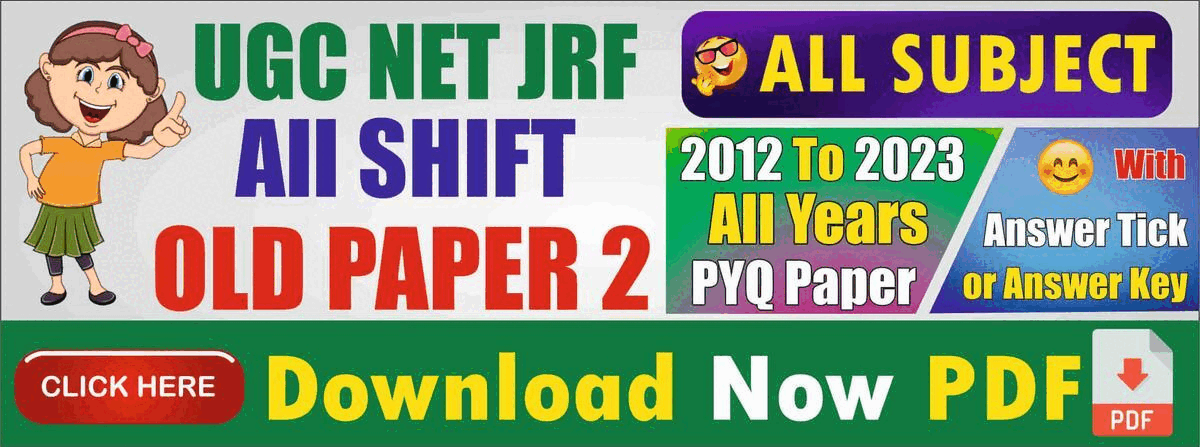Are you searching for the UGC NET Arab Culture and Islamic Studies Syllabus 2023 PDF Download? Look no further, as we have compiled all the important details and tips to help you prepare for the exam.
The UGC NET Arab Culture and Islamic Studies exam is conducted by the National Testing Agency (NTA) for candidates who wish to pursue a career in the field of Arab Culture and Islamic Studies. The exam assesses the candidates’ knowledge in the subject and tests their eligibility for lectureship and research fellowships.
If you are planning to appear for the UGC NET Arab Culture and Islamic Studies 2023 exam, it is important to have a thorough understanding of the syllabus and exam pattern. In this article, we have compiled all the important information you need to know about the UGC NET Arab Culture and Islamic Studies Syllabus 2023 PDF Download
UGC NET Arab Culture and Islamic Studies Exam Pattern 2023:
The UGC NET Arab Culture and Islamic Studies exam consists of two papers – Paper 1 and Paper 2. Both papers are conducted on the same day, and the duration of each paper is 3 hours. The exam is conducted online, and each question carries 2 marks. There is no negative marking for incorrect answers.
The UGC NET Arab Culture and Islamic Studies Exam consists of two papers: Paper 1 and Paper 2.
Paper 1:
- Duration: 3 hours
- Number of questions: 50
- Total marks: 100
- Type of questions: Multiple Choice Questions (MCQs) based on general aptitude, teaching and research aptitude, and current affairs.
Paper 2:
- Duration: 3 hours
- Number of questions: 100
- Total marks: 200
- Type of questions: MCQs based on Arab Culture and Islamic Studies subjects.
Both papers are conducted in a single session with no break in between. The candidates are required to appear for both papers to be considered for the selection process.
It’s important to note that there is no negative marking for incorrect answers in UGC NET Arab Culture and Islamic Studies Exam.
UGC NET Arab Culture and Islamic Studies Syllabus 2023: Download PDF
The UGC NET Arab Culture and Islamic Studies syllabus is divided into two parts – Paper 1 and Paper 2. Here’s a detailed syllabus for both papers.
Paper 1 Syllabus:
Teaching Aptitude:
- Teaching: Nature, objectives, characteristics, and basic requirements.
- Learner’s characteristics: Characteristics of adolescent and adult learners, and individual differences.
- Methods of teaching: Teacher-centered vs. learner-centered methods; Off-line vs. online methods.
- Evaluation systems: Elements and types of evaluation, evaluation in higher education, and grading system.
Research Aptitude:
- Research: Meaning, types, and characteristics.
- Steps of research.
- Methods of research.
- Research Ethics.
Reading Comprehension:
- Comprehension passages.
Communication:
- Communication: Nature, characteristics, types, barriers, and effective communication.
- Verbal and non-verbal communication.
- Classroom communication.
Logical Reasoning:
- Understanding the structure of arguments.
- Evaluating and distinguishing deductive and inductive reasoning.
- Verbal analogies.
Data Interpretation:
- Sources, acquisition, and interpretation of data.
- Quantitative and qualitative data.
- Graphical representation and mapping of data.
Paper 2 Syllabus:
Nta Ugc Net Arab Culture and Islamic Studies Syllabus 2023 in English
Unit – I : (Emergence of Islam) and khilafat-e-rashidah
1. Socio-Religious conditions of pre-Islamic Arabia 2. Political and Economic condition 3. Prophet’s life at Makkah and Madina 4. Migration: Importance and implications 5. Formation of Islamic State and Society at Madina 6. The Prophet(PBUH) as a Law giver, Statesman and Mercy to
mankind 7. Institution of Khilafat: Importance and relevance 8. Consolidation of Arabia under caliph Abu Bakr 9. Expansion and administration of Islamic State under Caliph
Umar 10. Expansion and Political Developments under Caliph Uthman and
Caliph Ali 11. Achievements of Khilafat-e-Rashidah
Unit –II : The Umayyads
1. The establishment of Umayyad dynasty 2. Prominent rulers 3. Prominent Sahabi and Tabaie scholars
4. Arabisation of the State 5. Social and Economic conditions 6. Administration 7. Education 8. Development of Arabic Language and Literature 9. Art and Architecture 10. Causes of Decline
Unit –III : The Abbasids
1. The establishment of the Abbasid rule 2. Prominent rulers 3. Prominent Scholars 4. Administration 5. Socio-Cultural Developments 6. Development of Religious sciences 7. Education and Educational Institutions 8. Development of Arabic Language and Literature 9. Art and Architecture 10. Trade and Commerce 11. Relations with neighbouring States 12. Causes of decline
Unit –IV : The Arabs in Spain and Sicily
1. The establishment of Umayyad rule in Spain 2. The conquest of Sicily 3. Prominent rulers 4. Prominent Scholars and their impact on the west 5. Socio-Cultural developments 6. Contribution to Science and Literature 7. Development of Libraries and Educational Institutions 8. Agriculture, Trade and Commerce
9. Art and Architecture 10. Disintegration of the Empire: Emergence of Small City-State 11. Muwahhidin and Murabitin: Emergence and decline 12. Fall of Granada and Spanish Inquisition
Unit –V : Dynasties of East and West
1. Ghaznavids 2. Saljuqs 3. Samanids 4. Fatimids 5. Khwarizmshahs 6. Mamluks 7. Aghlabids 8. Hamadanids 9. Idrisids 10. Tulunids 11. Ikhshidids 12. Ayyubids 13. Qachars
Unit VI : The Ottoman and Safavid Empire
1. Origin and Development of Ottoman Empire 2. Prominent Ottoman Rulers 3. The Ottoman administration and army 4. Socio-Religious and Educational conditions 5. The Ottoman Society 6. The Ottomans and the west 7. Art and Architecture 8. The Ottoman decline: causes 9. Origin and Development of Safavid Empire 10. Shah Ismail and the promotion of Shi ́ism
11. Shah-Abbas and the administrative reforms 12. Art and Architecture 13. Trade and Commerce
Unit VII : Islam in India
1. Advent of Islam in India (Kerala) 2. Islam in Sindh: Muhammad bin Qasim’s Administration and
Religious Policy 3. Establishment of Delhi Sultanate 4. Administration during the sultanate period 5. Socio-Religious and Educational conditions 6. Madaris and their syllabii 7. Contribution to Fiqh and Hadith Literature 8. The Mughal rule and administration 9. Socio-Religious and Educational scenario during the Mughal
Rule 10. Contribution to Fiqh and Hadith Literature (Sheikh Ahmad Sirhindi, Shah Waliullah, Sheikh Abdul Haq Muhaddith Dehlvi and others) 11. Mughal art and architecture 12. Industry, Trade and Commerce 13. 1757: British Colonialism and its expansion 14. 1857: First war of independence and its consequences 15. Role of Muslims in the freedom struggle: Khilafat and
non-cooperation movements
Unit – VIII : Islamic Sciences – Tafsir, Hadith and Fiqh
1. Collection and compilation of Quran 2. Ethical, Social, Political and Economic teachings of the Quran 3. Origin and development of Tafsir Literature 4. Classical Tafsir: Al-Tabari, Al-Razi and Zamakhshari
5. Tafsir in the modern age: Tafsir al-Manar, Fi-zilal al-Quran, Bayan al-Quran, Tarjuman al-Quran, Tafhim al-Quran, Tadabbur al-Quran and Tafsir al-Quran 6. Origin and development of Hadith Literature 7. Compilation of Hadith Literature 8. Riwayah and Dirayah 9. Muwatta, Musnad,Sihahe-Sitta and their compilers (authors) 10. Origin and development of Fiqh Literature 11. Sources of Islamic Fiqh
Unit – IX : Muslim Philosophy, Sufism and Muslim Contribution to
Knowledge
1. Origin and development of Muslim philosophy 2. Classical Muslim Philosophers: Al-Kindi, Farabi, Ibn-Sina,
Al-Ghazzali, Ibne Rushd. 3. Qadariyya, Murjiyya, Khawarij, Mutazalites and Asharites 4. Origin and development of Sufism 5. Prominent Sufis: Hassan al- Basri, Junaid Baghdadi, Ibne-Arabi and
Sheikh Ali Hujwiri 6. Major Sufi orders: Chishtiyya, Suhrawardiyya, Qadiriyya,
Naqshabandiyya 7. Muslim contribution to Natural and Social Sciences: Medicine, Mathematics, Astronomy, Historiography, Geography, chemistry and Botany 8. Prominent classical thinkers and scientists Al-Mawardi, Al-Biruni,
Ibn-Tayimiyya, Ibn-Khaldun, Ibn al-Baytar, Ibn al-Haytham etc.
Unit – X : Modern Trends, Movements in Islam
1. Advent of Western Modernity and Technology in Egypt and
India 2. Muhammad Ali Pasha and his reforms
3. Tanzimat 4. Sir Syed and his educational movement 5. Modern religious movements: The Wahabiyya, the Sokoto and
Faraizi movement 6. Shah Waliullah and his movement 7. Syed Ahmad Shaheed and his movement 8. Ikhwan al-Muslimun and Jamaate-Islami 9. Young Turk Movement, Nursi Movement 10. Arab Nationalism: Abdul Rehman al-Kawakibi 11. Western Modernity in Turkey and Iran:Mustafa Kemal and Reza
Shah 12. Muslim Modernist thinkers: Ali-Abdul Raziq, Qasim Amin, Fazlur
Rahman 13. Contemporary Muslim Organisations and Schools of Thought:
Deoband, Nadwa, the Salfis and Barelvis 14. Modern Islamic Thinkers: Jamalud-din-Afghani, Muhammad Abduh, Rashid Rida, Hasan al- Banna, Syed Qutb, Shibli Nomani, Allama Iqbal, Abul-A ́la Maududi, Ayatullah Khomeini, Ali Shariati and Ahmed Kasravi Tabrezi. 15. The Iranian Revolution 16. The Palestine Problem – Liberation Organisation: PLO, Hamas,
and Hezbollah 17. The Arab Spring 18. Egypt: Democracy on Trial 19. Conflicts in West Asia: Iraq, Libya, Syria and Yeman 20. Indo-Arab Relations
Paper 2 Syllabus Download Pdf:
Ugc Net Arab Culture and Islamic Studies Syllabus 2023 in English
Ugc Net Arab Culture and Islamic Studies Syllabus 2023 in Hindi
Preparation Tips for UGC NET Arab Culture and Islamic Studies Exam 2023:
Here are some tips for preparing for the UGC NET Arab Culture and Islamic Studies exam 2023:
- Understand the syllabus and exam pattern thoroughly.
- Make a study plan
- Refer to standard textbooks and study materials recommended for the exam.
- Practice previous year question papers and mock tests.
- Focus on time management and accuracy while attempting the questions.
- Take regular breaks and maintain a healthy lifestyle to avoid burnout.
- Join coaching classes or online courses if necessary.
- Stay updated with current affairs related to the Arab Culture and Islamic Studies field.
Important Points:
- The UGC NET Arab Culture and Islamic Studies exam is conducted by NTA for candidates who wish to pursue a career in Arab Culture and Islamic Studies.
- The exam assesses the candidates’ knowledge in the subject and tests their eligibility for lectureship and research fellowships.
- The exam pattern of UGC NET Arab Culture and Islamic Studies 2023 includes multiple-choice questions and is conducted in online mode.
- The marking scheme of the exam is +2 for a correct answer and no negative marking for incorrect answers.
- The duration of the exam is 3 hours, and the number of questions is 150.
- The UGC NET Arab Culture and Islamic Studies Syllabus 2023 PDF Download is an important document that provides a detailed outline of the topics that will be covered in the exam.
- To download the syllabus, candidates can visit the official website of NTA and click on the link provided.
- The syllabus is available in PDF format and can be downloaded for free.
- The syllabus is divided into nine units, each covering a specific topic related to Arab Culture and Islamic Studies.
- To prepare for the exam, candidates must understand the syllabus, make a study plan, practice previous year question papers, join a coaching institute, take mock tests, and revise regularly.
FAQs:
- Is there any negative marking in the UGC NET Arab Culture and Islamic Studies exam 2023? Ans: No, there is no negative marking for incorrect answers.
- Can I download the UGC NET Arab Culture and Islamic Studies Syllabus 2023 PDF from the official website? Ans: Yes, the syllabus is available for download on the official website of NTA.
- What is the duration of the UGC NET Arab Culture and Islamic Studies exam 2023? Ans: The duration of each paper is 3 hours.
Also Check:
Conclusion:
In conclusion, the UGC NET Arab Culture and Islamic Studies exam 2023 is a crucial opportunity for aspirants who want to pursue a career in the teaching or research field. To crack the exam, it’s essential to have a clear understanding of the syllabus, exam pattern, and prepare accordingly. With a comprehensive understanding of the UGC NET Arab Culture and Islamic Studies Syllabus 2023 PDF download and proper preparation, you can clear the exam with flying colors.





